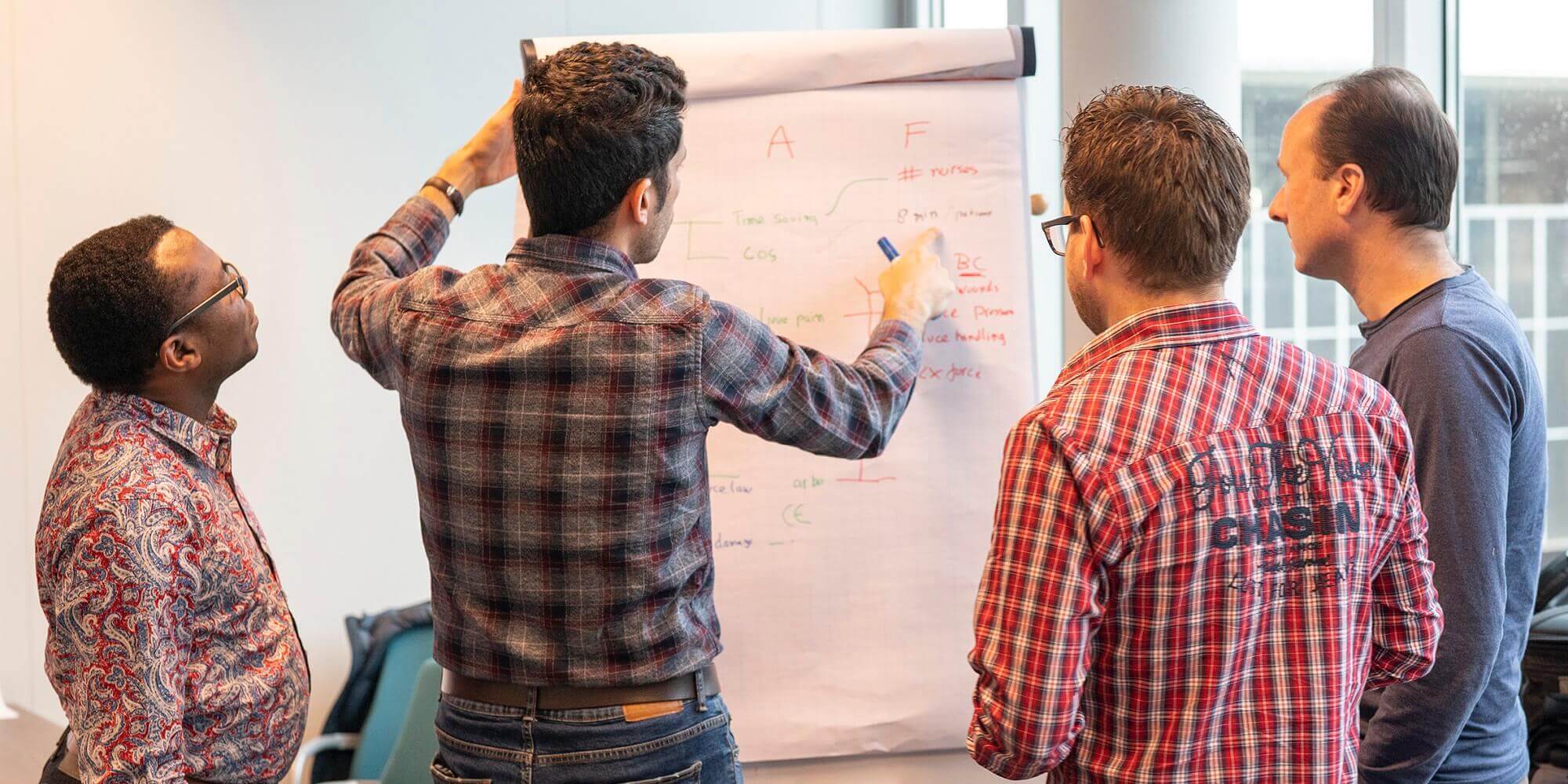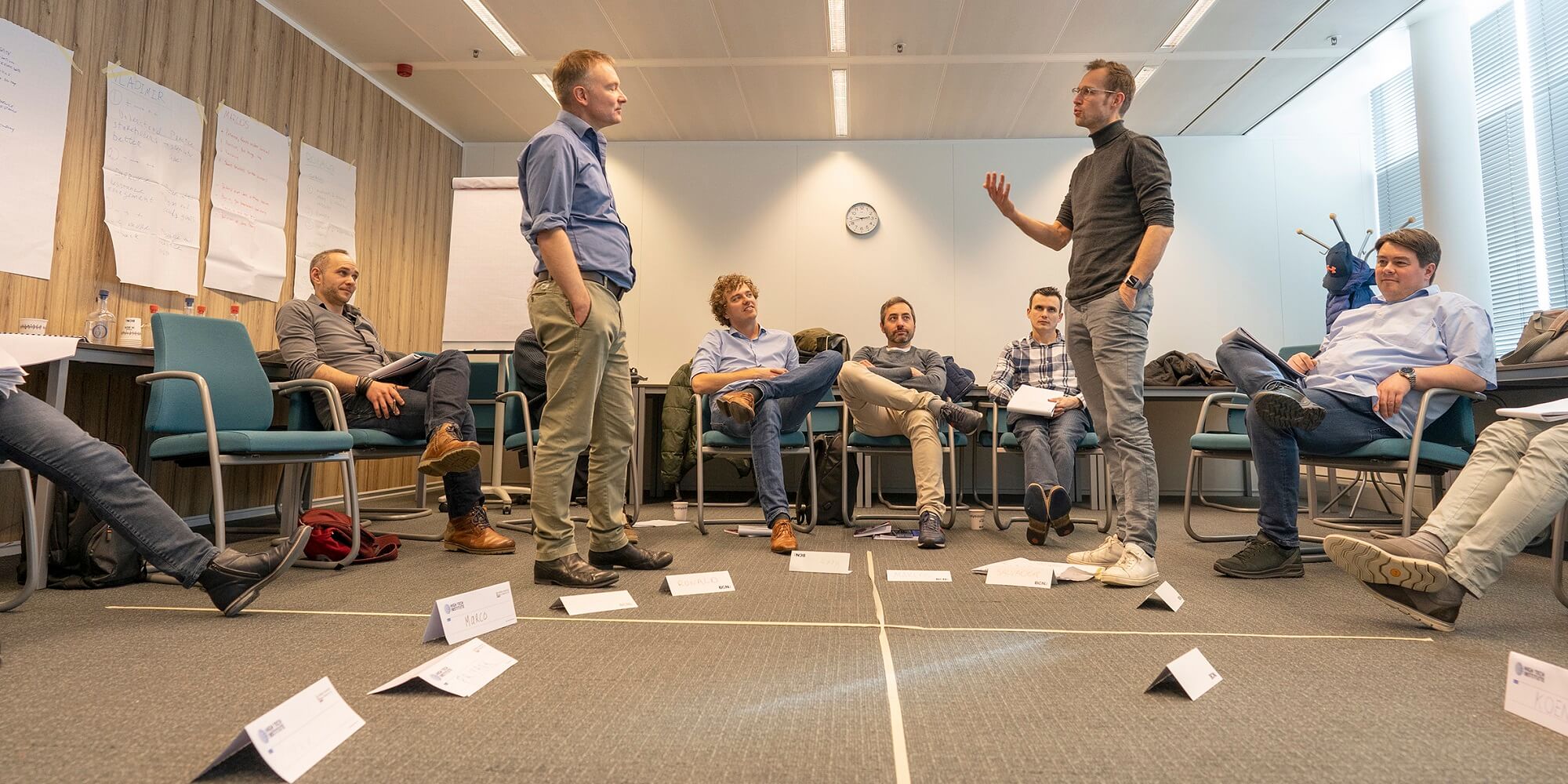The training includes lectures, self-study, small group exercises, structured brainstorming, technical discussions, agile techniques, case studies, and decision-making processes and a consistent exercise case study tying all together. Only applied knowledge is useful.
Are you leading a project in technical development or product definition, or contributing to such projects? If so, you're undoubtedly familiar with the constant struggle between the demand for innovative products and the constraints of time pressure and cost reduction. The wide gap between the theory of project management and the daily chaos of projects can often be striking!
This project leadership training empowers you to confidently surf on the top of the waves of project management, rather than constantly swallowing water and sinking.
The approach is not tied to a specific methodology, but encourages you to pursue a flexible, customer-oriented approach that meets the true needs of your project at every stage. The focus is on the art of deliberately not doing certain things and avoiding common pitfalls and mistakes.
This program is based on 26 years of international experience in project leadership of the trainer in sectors such as automotive, special machine construction, and semiconductor manufacturing. It will cover the integration of different disciplines like software and hardware into a shared final delivery to the customers. It offers a balanced mix of theory, practical case studies, and interactive exercises aimed at enabling participants to master the complexity of product development.
The project management training is available as a 3-day course and can also be customized as an in-house course to address the specific challenges and requirements of your organization.
Each section begins with an introduction to help participants understand the key concepts. The core points taught in each section are deepened through a related practical case study, allowing participants to apply the theoretical knowledge gained to a real-world example. This includes the integration of hardware and software, including the pitfalls and limits of the method.
Objective
Participants will learn to:
- Understand the complexity and nuances of their project;
- Identify stakeholders and effectively engage them;
- Define clear project goals or a project agreement;
- Deal with uncertainties in the project and consider these when structuring the project;
- Divide the overall project into subprojects;
- Lead subprojects according to their complexity and predictability;
- Develop actionable, relevant alternatives;
- Identify and manage risks early on;
- Structurally recognize true project progress and avoid blindly ticking off checklists;
- Ensure compliance with agreements made;
- Properly handle escalations and develop effective communication strategies;
- Purposefully foster and control creativity within the team;
- Deal with crises and unforeseen changes;
- Effectively document projects and implement changes successfully;
- Maintain personal health and enjoy work;
- Recognize when it is time to pursue a new direction for yourself.
Target audience
This training is intended and designed for project managers, development team members, team leaders, technical marketing experts, simulation engineers, systems engineers, requirements engineers, quality managers, and anyone looking to improve their project management skills.
Prerequisites include a degree in engineering or science and 3-5 years of relevant experience in technology or product development.
The trainer will tie to the Systems architect(ing) course, as system architects and project leaders have to collaborate in complex development projects seamlessly.
Program
Day 1: Project Setup
- The beginning of a project
- What is my project?
- Recognizing and managing stakeholders
- Project Charter as the project contract
- The project's roadmap
- Introduction to requirements creation
- The project plan: The big cutting plan
- Establishing communication structures
Day 2: Managing Project Complexity
- Project complexity and predictability: Methods leading subprojects
- The project plan part 2: Working out the details
- Decision making: Developing actionable, relevant alternatives
- Early identification and control of project risks
- Monitoring true project progress: Structured recognition and avoidance of blind checklist ticking
- Compliance with agreements: Monitoring and handling of non-compliance
- Effective escalation processes and communication strategies in project management
- Creativity in the team: Encouragement and limitation at the right times
Day 3: Successful Delivery and Control of the Project
- The project plan Part 3: Validation, verification, and testing
- Effective project documentation and implementation of changes
- Crisis management and dealing with unforeseen changes
- Staying healthy and enjoying work: Strategies for project managers
- Recognizing signals: When it's time to change your course
Methods
Certification
Participants will receive a certificate from the High Tech Institute upon successful completion of the course.
%20optimized.jpg)

%20optimized.jpg)






